
Chris Pratt sparks debate over when parents should throw away childhood trophies
Chris Pratt has asked the question almost every parent wonders when raising their children: Is it okay to throw away childhood trophies? The Guardians of the Galaxy star, 44, recently posed the question to his social media followers after he and his wife, Katherine Schwarzenegger, came across all her childhood trophies kept by her parents, Arnold Schwarzenegger and Maria Shriver. Pratt took to Instagram on 24 October, where he shared several photos of the children’s book author, 33, holding up some of her many childhood trophies - including “Problem Solving Super Star 4th Grade 2000” and “most improved two-year-old in swim class”. In the lengthy caption, the Parks and Recreation alum explained that Schwarzenegger’s mother had been “storing special items” from her daughter’s childhood for years, which he noted was “so very thoughtful”. “To see my darling wife beaming with sentiment as she opens these crates of meticulously organised keepsakes, remembering her cherished youth, makes me grateful for the efforts her folks put into archiving,” Pratt wrote. “I suppose that’s the payoff for the work it took to store this stuff, the smile on her face as she relives moments of her youth. To pray one day that your children will look back on their childhood with glee is a blessing. It is the hope of parenthood.” However, as the couple - who have been married since 2019 - perused Schwarzenegger’s prized possessions, it got him thinking about how long he’s supposed to hold onto his own children’s mementos. Pratt shares an 11-year-old son, Jack, with ex-wife Anna Faris and two daughters - Lyla, three, and Eloise, one - with Schwarzenegger. “Real talk,” Pratt said. “Once your kid goes through the stuff, is it okay to toss? I mean… do we need the ‘I was on a sports team trophy?’ Can they be donated? Repurposed? How many do we gotta keep? Not all of them right? Any of them? Is there a grading scale? Like, did you win? Were you a champion? Is there a specific sentimental connection? Help me out here. Do they go back in storage?” His relatable question prompted many parents in the comments section to sound off on how long they’ve kept their children’s trophies. Some users admitted that they wished their own parents had held onto their accolades for so long. “Wait this is amazing. I’ll be saving my children’s stuff for sure,” one person commented. “Well, I have no keepsakes from childhood and I wish I did. So there is that,” another said. “I had my boys go through their boxes and they kept what was special to them. I tossed the rest,” a third fan wrote. “FREEDOM!!!” Others revealed what they did to cherish their children’s precious memories while still saving some room in the storage bin. “I donated all my old trophies to an organisation that removes the labels and repurposes them for fun awards,” wrote one fan. “For those sentimental ones, we peeled off the engraved part and kept it in a plastic pocket notebook and tossed the trophy part,” said someone else. Another user suggested: “Give them out as prizes when your friends come over for game night.” Meanwhile, Schwarzenegger joked that her husband was simply jealous she’s acquired so many trophies over the years. “Feels like someone is a litttlllee bit jealous of my natural athleticism from birth and ability to solve problems,” she commented. Pratt’s mother-in-law also weighed in on the debate, as she applauded herself for saving almost every prized possession for her four children. “Omg I’m so happy,” Shriver commented. “Here’s to story trophies and school work and dresses and party outfits I feel vindicated.” The Jurassic World star was married to Faris in 2009. The former couple announced their split in August 2017 and finalised their divorce in October 2018, four months after he began dating Schwarzenegger. He proposed to the author in January 2019 and they were married in June that year. Pratt has often shared glimpses into his life as a father of three on social media. Most recently, he went viral when he posted a photo of the glittery makeover he received from his two daughters. He shared two photos of his new look, including one where his forehead was bedazzled with teal, purple, and silver gems. The other photo showed Pratt with pearl-like gems dotting his face, as well as a teal manicure. “All I have to say is… Jack would never do this to me,” he captioned the post. Read More Gym maths: How to optimise 22 minutes exercise a day according to fitness experts Jasmine Harman tearfully recalls mother’s struggles with hoarding Neglecting women’s health at work could cost UK economy £20.2bn a year – analysis Gym maths: How to optimise 22 minutes exercise a day according to fitness experts Jasmine Harman tearfully recalls mother’s struggles with hoarding Neglecting women’s health at work could cost UK economy £20.2bn a year – analysis
2023-10-25 22:52
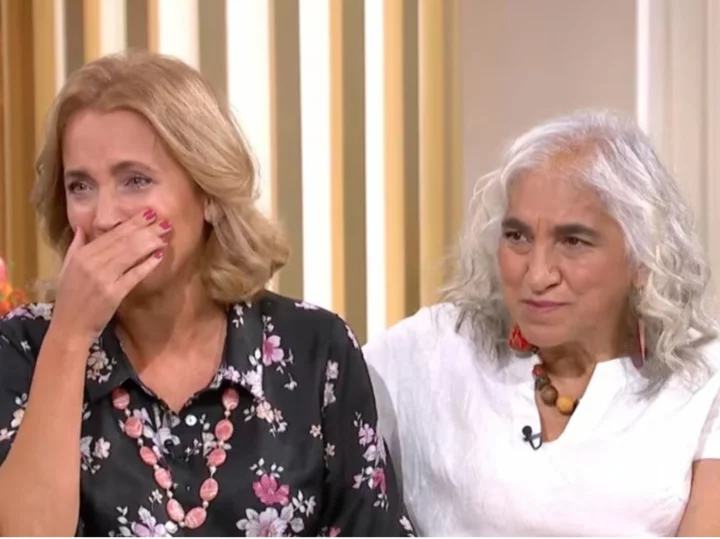
Jasmine Harman tearfully recalls mother’s struggles with hoarding
TV presenter Jasmine Harman became emotional as she opened up about her mother’s struggles with hoarding – and how it adversely impacted their relationship for years. The host of Channel 4’s A Place in the Sun, Harman, 47, said she “refused to bring people home” and was “really, really embarrassed and ashamed” about her mum Vasoulla’s condition, on Wednesday (25 October) during an appearance on This Morning. “In fact, when I started working in television, it was my biggest fear that someone would find out about the way I’d grown up and the way that we lived at the time,” she told Dermot O’Leary and Allison Hammond. Reflecting on how things had changed since then, Harman teared up as she affirmed her priority is “having a loving relationship” with Vasoulla – and not “focussing on the hoarding” anymore. Addressing her mother, Harman added: “She’s helped me to become a much more compassionate person. We used to fight, didn’t we? “But now we have a relationship that’s outside [of the hoarding].” Hoarding was recognised as a mental health disorder in 2013. According to the World Health Organisation (WHO), it is characterised by “an accumulation of possessions due to excessive acquisition of, or difficulty discarding possessions, regardless of their actual value”. The Diagnostic and Statistical Manual of Mental Disorders (DSM) outlines detailed criteria that psychologists can use to diagnose hoarding, including cluttered living spaces where the room’s intended use [of cooking, sleeping, or sleeping] has become impossible. These behaviours usually appear during a person’s early life, with Vasoulla explaining it was triggered by “the trauma of loss” in her case. “We moved from Cyprus when I was about three so I left my baby things back home and started collecting trinkets in bombed-out houses that were still about in the early Sixties, after the war – trinkets that I treasured,” she explained. “Then we moved back to Cyprus for a couple of years and those things all got lost. Then we moved back to England and all my new ties got lost – so I just had lots of upheaval, lots of loss.” Vasoulla, whose father was killed in Cyprus, added: “It’s more the loss, like a bereavement. Losing your father is a big thing, moving country ...you lose everything and you get a new place to live. The trauma of loss [is] something that a lot of people have as the onset of their hoarding behaviour.” The mother-daughter duo previously opened up about how hoarding affected their lives in a 2011 BBC documentary, titled My Hoarder Mum & Me. Speaking about the “cathartic experience”, Harman on Wednesday confessed:“I genuinely had no idea how many people were affected by this.” Around three million people are reportedly impacted by the mental health condition, according to Hoarding Disorders UK. The organisation’s director Jo Cook, who joined Vasoulla and Harman on the This Morning couch, explained that hoarding is neither a lifestyle choice, nor “about poor housekeeping”. When asked about supporting loved ones who might struggle with hoarding, Cook recommended joining a support group and approaching the anxiety-based disorder with empathy. “It’s really important that that person that you’re helping, feels safe in their home with you. Because, essentially, you’re unpicking someone’s nest, so you need to make sure you’re doing it slowly and surely,” she added. If you have been affected by this article, you can contact the following organisations for support: actiononaddiction.org.uk, mind.org.uk, nhs.uk/livewell/mentalhealth, mentalhealth.org.uk. Read More Pete Davidson is on the market for a hot date - but not for him Gym math: How to optimise 22 minutes exercise a day according to fitness experts Neglecting women’s health at work could cost UK economy £20.2bn a year – analysis Gym math: How to optimise 22 minutes exercise a day according to fitness experts Neglecting women’s health at work could cost UK economy £20.2bn a year – analysis Nearly three-quarters of mothers feel invisible, study suggests
2023-10-25 21:46

Neglecting women’s health at work could cost UK economy £20.2bn a year – analysis
Neglecting women’s health in the workplace could be costing the UK economy around £20.2 billion each year, analysis has suggested. In a new survey of 2,000 women, 68% said that they have dealt with health issues at some point in their career, whilst almost 29% felt their employers were not supportive. When factoring in specific health matters that relate to women, including endometriosis, fertility, menopause and periods, this figure increases to 36%, leaving 46% of women worried that their health could impact their career trajectory and 48% thinking they would be forced to resign. The study conducted by AXA Health in partnership with the Centre of Economics and Business Research (CEBR) also suggested that 83% of women have had their personal finances affected when faced with health issues. For instance, 52% of women have had to take time off, 22% missed out on a promotion and 20% settled for lower pay. Economic modelling from AXA Health and CEBR suggested that ignoring women’s health at work could be costing the UK economy £20.2 billion a year. From 90% of women struggling emotionally, 46% feeling helpless and 43% feeling less motivated at work, this issue has also had a huge impact on their mental health and wellbeing. “As this report finds, neglecting the health of women in our workplaces isn’t just a matter of compassion; it’s a serious economic oversight,” said Flick Drummond MP, who is serving as the co-chair of the All-Party Parliamentary Group on Women and Work. Dr Pallavi Bradshaw, deputy chief medical officer at AXA Health, added: “While companies certainly still have a way to go in addressing women’s health at work, there is promise in the increased willingness of women to discuss their health concerns with colleagues and managers.. “For example, our women’s health report found that 60% of women who talked about their health found their employers to be supportive, whether this be through time off, offering counselling or making adaptations to the workplace. “These developments are positive, but as we delve further into the findings, it becomes evident that concerns extend beyond just health issues. A striking 53% of the women we surveyed voiced that, within their workplaces, women often shoulder more unplanned responsibilities – such as caring for loved ones – than their male counterparts. “Furthermore, when reflecting on their own families, 39% of respondents revealed that they bear a greater burden than male family members when it came to unexpected caring responsibilities. This gender-based imbalance in unpaid labour not only perpetuates inequality but also places women at risk of being sidelined in their careers, overlooked for promotions, or compelled to work beneath their true potential.” Bradshaw said the economic impact of neglecting women’s health is “still significant”, and urged the need for “more education, robust workplace policies and talent retention initiatives”. The report suggested women who work part-time are hit even harder when it comes to health-related issues. It found that 61% are worried about having to leave their jobs prematurely, which exceeds the average by 19%. Only 17% of women who work full-time believe that conversations surrounding women’s health are not encouraged in their workplaces, but this increases to 23% for those who are employed part-time. According to a report conducted by The Royal College of Obstetricians and Gynaecologists, women represent 51% of the population and 47% of the workforce. Read More Nearly three-quarters of mothers feel invisible, study suggests The best ways to work-out in 22 minutes – as study finds this is magic number for offsetting ‘negative impact of sitting’ What crops will we be growing in the future, as climate change alters the landscape? As Rebecca Adlington shares heart-breaking miscarriage news: How to support others experiencing baby loss What you need to know about new research into treating cervical cancer How to do Halloween make up and still take care of your skin
2023-10-25 19:57
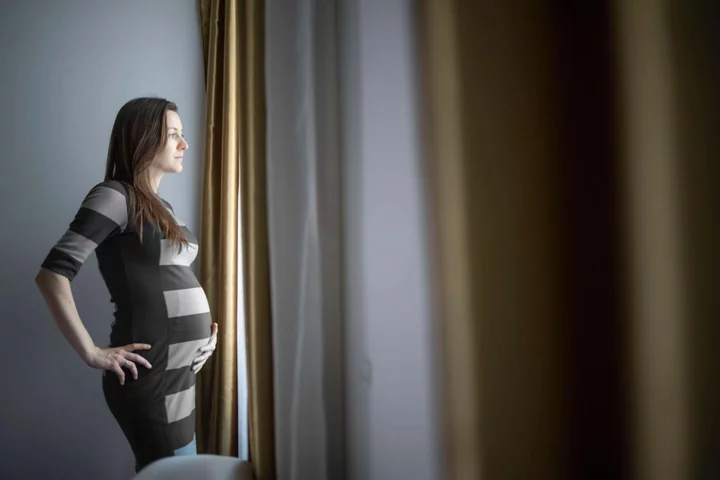
Nearly three-quarters of mothers feel invisible, study suggests
Most women feel ‘invisible’ and ‘unappreciated’ when they become mothers, new research has revealed. Instead of ‘having it all’, 72% of mums feel invisible and 93% feel unappreciated, unacknowledged or unseen once they’ve had children. Another 93% said that since having a child, their identity has been reduced to only being a mother. And the weight of expectation is huge, too, with 97% of mums questioned in the survey by the online motherhood community Peanut saying pressure is put on them to ‘do it all and be it all’. Plus, 94% believe they’re expected to put themselves last and self-sacrifice for their families, partners, jobs, and other responsibilities, so they can achieve what they feel is required of them. Nearly half of mums (46%) said they don’t feel supported by the healthcare system after giving birth, and 70% expected more support from society in general. As a result of this lack of support and invisibility, most women surveyed (95%) agreed there’s an impact on their mental health and wellbeing, with 86% having experienced anxiety, 82% feeling stressed, burned out or exhausted, and 80% feeling overwhelmed, or lonely and isolated. Other strong feelings identified by mums included irritability (78%), loss of identity (65%), feeling judged (66%), feeling unsupported (64%), guilt (63%), depression (55%), resentment (54%), worthlessness (50%), and neglect (24%). Women attributed the things making them feel invisible to unfair division of labour in the home, trying to juggle a career and childcare, lack of empathy and understanding from both family and everyone else, gaps in healthcare and mental health support, identity and independence struggles, hiding the pain of pregnancy loss, and general pressure from healthcare, education institutions and the media. Commenting on the findings, psychologist Dr Rachel Goldman said: “The invisibility of motherhood is a stark reality many face. The journey begins with frequent visits to healthcare providers, but once the child arrives, there’s a sudden gap, creating a sense of abandonment. Women grapple with overwhelming feelings of exhaustion and stress, only to confront rushed appointments where healthcare professionals don’t have time to adequately dive into concerns.” As a result of the research, Peanut has launched an Invisible Mothers campaign, featuring a State of Invisibility report, to draw attention to mums’ struggles and highlight ways to make them more visible and better supported. The report found mums think more empathy and gender equality will help them feel more visible, with 82% calling for flexible, family-friendly workplaces, 77% wanting equal and extended leave for both parents, and 71% saying an equal share of parenting tasks would help. Additional measures that will help mums, says Peanut, include more public toilets having changing facilities, additional resources for mental health support, support groups for both parents, and educational initiatives about gender stereotypes. The report also identified the most common unwanted questions that contribute to mothers’ feelings of invisibility, with alternative suggestions that women say they would prefer to hear. So instead of asking ‘How’s the baby?’, Peanut suggests mums are asked ‘How are you really – mentally, emotionally and physically?’, and rather than ‘Was the pregnancy planned?’, try ‘Are you excited?’, and change ‘How do you do it all?’ to ‘How’s the mental load?’. Goldman added: “It doesn’t take grand gestures to offer support. A genuine ‘how are you’ or ‘thinking of you’ can significantly shift perceptions, signalling to someone that they matter. Small changes or actions, like compassionate conversations, can have profound impacts. “By acknowledging and addressing these issues, we can begin to truly support motherhood.” Read More The best ways to work-out in 22 minutes – as study finds this is magic number for offsetting ‘negative impact of sitting’ What crops will we be growing in the future, as climate change alters the landscape? As Rebecca Adlington shares heart-breaking miscarriage news: How to support others experiencing baby loss What you need to know about new research into treating cervical cancer How to do Halloween make up and still take care of your skin Which houseplants best suit your star sign?
2023-10-25 19:20
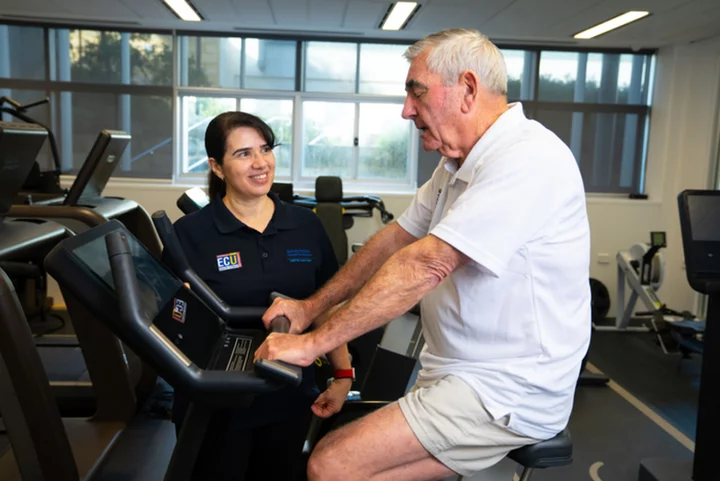
Just 25 minutes of daily exercise enough to cut death risk from prolonged sitting, scientists say
Working out for just about 20-25 minutes daily may be enough to cut a heightened risk of death due to a highly sedentary lifestyle, a new study finds. Adults in developed countries spend about 9-10 hours on average every day sitting down mostly while working, with the highly sedentary lifestyle linked to a heightened risk of death. The research, published in the British Journal of Sports Medicine, found just about 25 minutes of daily moderate to vigorous physical activity (MVPA) eliminates the risk of high sedentary time. Individual data from four groups of people, who were fitted with activity trackers, was pooled for the latest study by scientists, including those from The Arctic University of Norway. Researchers sought to find out whether physical activity might modify the association between sedentary time and death, and what amount of physical activity and sitting time may influence the risk. The analysis included data from nearly 12,000 people aged at least 50, who had a minimum of 4 days of 10 daily hours of activity tracker records. The participants had been monitored for at least two years, and had provided details of potentially influential factors, including their sex, educational level, weight, height, smoking history, alcohol intake and whether they had current and/or previous cardiovascular disease, cancer and/or diabetes. About 5,950 people spent fewer than 10.5 hours sitting down every day, while 6,042 clocked up 10.5 or more sedentary hours. Data from death registries found that during an average period of five years, 805 (7 per cent) people died, 357 (6 per cent) of whom spent under 10.5 hours sitting down every day and 448 of whom clocked up 10.5 hours or more. Being sedentary for more than 12 hours a day was found to be associated with a 38 per cent heightened risk of death compared with a daily tally of eight hours. But this was only among those registering fewer than 22 daily minutes of moderate to vigorous physical activity, scientists said. The study found over 22 daily minutes of moderate to vigorous physical activity was linked with a lower risk of death. Higher daily tallies of physical activity were found to be linked to an even lower risk irrespective of the amount of time spent seated every day. For instance, an extra 10 minutes a day of exercise was linked to a 15 per cent lower risk of death in those spending fewer than 10.5 sedentary hours. This extended duration of workouts was associated with a 35 per cent lower risk among those spending more than 10.5 sedentary hours every day. Citing the study’s main limitation, scientists said the research was observational and can’t establish cause and effect. The study could also not account for other potentially influential factors like diet, mobility issues and general health. However, scientists said small amounts of MVPA “may be an effective strategy to ameliorate the mortality risk from high sedentary time”. Read More Study reveals why millions of women wake up at 3.29am Sports culture is ‘intimidating’ and putting people off working out, study finds Running could be just as effective at treating depression as medication, scientists find This Chinese martial art may slow down Parkinson’s disease The best ways to work-out in 22 minutes – as study finds this is magic number for offsetting ‘negative impact of sitting’ Mick Jagger, father of eight, explains why parenting is ‘not like riding a bike’
2023-10-25 15:25
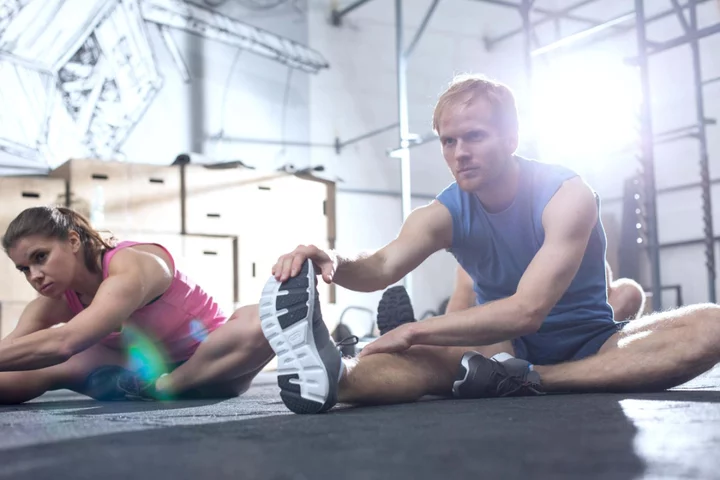
The best ways to work-out in 22 minutes – as study finds this is magic number for offsetting ‘negative impact of sitting’
Just 22 minutes of housework, jogging or brisk walking per day could offset the negative effects of sitting down for too long, new research has suggested. Researchers found sitting for extended periods – for example, long stints in front of the TV or working at a desk – is associated with dying earlier. However, participating in moderate-to-vigorous physical activity (MVPA) can eliminate the risk. At the more moderate end of the scale, this could be anything from heavy cleaning around the home, playing badminton or cycling at 10-12mph, while more vigorous activities could include jogging at 6mph or faster, playing football, basketball or tennis. The study, published online in the British Journal of Sports Medicine, backs up the UK chief medical officers’ recommendation of trying to get 150 minutes of MVPA per week – roughly 21 minutes per day. The research looked at data for 11,989 people aged over 50, half of whom where women, from Norway, Sweden and the US, who had worn activity trackers which measured their MPVA. How long they spent sitting daily was also recorded. Over a five-year follow-up, 805 of the people died. Author Edvard Sagelv, from the Arctic University of Norway, told the PA news agency: “In our study, we found that only those people doing more than 12 hours per day sitting had a higher risk of death. Every minute higher MVPA showed a lower risk of death – meaning if people were doing less than 22 minutes (such as 10 minutes) there was still a lower risk of death. “However, doing 22 minutes eliminated the higher risk of death from sedentary time. This means that if doing 22 minutes or more per day, there was no excess risk from sedentary time. And, if doing more than 22 minutes per day, there was a lower risk of death overall. Basically, the more the better.” How can I get the best workout in 22 minutes? Less than half an hour a day to offset the negative effects of sitting for too long is good news for anyone who normally struggles to find time to exercise – but how can you make those 22 minutes really count? We asked a fitness pro for some suggestions… Compound exercises Ali Malik, personal trainer and founder of Fit Labs Kensington, suggested focusing on compound exercises. “Compound exercises are full-body exercises that engage with multiple muscle groups at the same time. When you are limited in time, it would be more beneficial to do a squat, for example, which engages your core, lumber spin and whole lower body, instead of a bicep curl, which doesn’t,” Malik said. “Push-ups are also great, as they engage your upper body muscles and core. If you are doing it on your knees, you use less of your legs, but a full push-up will be using your glutes and legs as well – engaging with more than one muscle group.” Planks are another great compound exercise, because “it’s predominately about your core but engages your full body, as you have to work hard to keep yourself stabilised”. Malik added: “People sometimes think dead lifts is an advanced exercise, but it’s not. Everyone does a does at least one everyday. For example, if you are picking up a bag from the floor, that’s a dead lift. It can be done with anything as light as two plastic bags filled with a water bottle each, but if you are in the gym you can use dumb bells and kettle bells.” Circuits For a well-rounded workout in 22 minutes, Malik also suggested a circuit based workout – starting with a three-minute warm-up. “This could include a cat cow stretch, a walk out [start standing up, then bend forwards and walk your body out in front of you using your hands, and then back up to standing], then jumping jacks to get your heart rate up and loosen your muscles.” Then for the circuits, it’s all about repeating multiple exercises in the same order. “I would do 10 squats, 10 press-ups and a 30-second plank. Then rest for 30 seconds, and then repeat that pattern six times. This is about 16 minutes of the workout,” said Malik. “But if you are feeling bored and would like to switch things up, you could do 10 lunges, 10 shoulder taps and leg raises instead.” Being efficient during a short workout is key, added Malik: “You don’t want to rush through the exercises to risk poor form, but you also don’t want to waste time with long five minute breaks.” Allow for a three-minute cool-down at the end. Malik explained: “It’s all about calming movements at this stage, to bring down your heart rate and relax your muscles. Start with a child pose, striking cobra – push your pelvis into the floor and then raise your chest, whilst applying pressure with both hands on either side of the body – then I would do a pigeon pose, where you have one leg out in front of you in a bent position and one leg behind you that is straight. This stretches your glute muscles.” What are the benefits? There are various benefits to exercises using this format. Malik said: “It will elevate your heart rate, put your muscles under tension to maintain and build strength, and help with your cardiovascular system.” Read More What crops will we be growing in the future, as climate change alters the landscape? As Rebecca Adlington shares heart-breaking miscarriage news: How to support others experiencing baby loss What you need to know about new research into treating cervical cancer How to do Halloween make up and still take care of your skin Which houseplants best suit your star sign? 5 of the hottest new perfume launches for autumn/winter
2023-10-25 14:19

Mick Jagger, father of eight, explains why parenting is ‘not like riding a bike’
Father of eight Mick Jagger has shared some of the lessons he’s learned about parenting. The 80-year-old singer addressed how his approach to fatherhood has changed over the years during a recent interview with The Guardian. His eight children range from ages 52 to six years old, as he welcomed his youngest son, Deveraux, with his current girlfriend, Melanie Hamrick, in 2016. Speaking to The Guardian, Jagger confessed that even when he welcomed his eighth child, he still had a bit to learn about fatherhood. “You get a bit out of practice – it’s not like riding a bike,” he said. “The more children you have, the more laissez-faire you get about them, to be honest. And it depends on the child.” The Rolling Stones frontman reflected on how he’s enjoyed seeing his children develop new passions as they’ve grown up. However, he also acknowledged that there were a few moments in his children’s lives that he missed out on due to his busy career. “They have their own personalities and you can mould them to a certain extent, but you see their likes and dislikes and encourage them to do things they gravitate towards,” he said. “It’s fun to have children, at any age. But if you’re working and always away, you don’t get to enjoy it quite as much.” Jagger also explained why his approach to parenting is different with his youngest son, in comparison to his other children. “I wasn’t working so much, so I was able to spend more time. And then we had the lockdown – he’s only six, and two of those years I did almost nothing [with the band],” he said. In addition to Deveraux, Jagger has seven children from previous relationships. In 1970, Jagger welcomed his first child, Karis, 52, with actor Marsha Hunt. The next year, his ex-wife Bianca Jagger gave birth to their daughter Jade, 51. He shares daughters Elizabeth, 39, and Georgia May, 31, and sons James, 38, and Gabriel, 25, with actor Jerry Hall. In 1999, he and model Luciana Gimenez Morad welcomed their son Lucas, 24. This isn’t the first time that Jagger has spoken candidly about his family. Last month, he hinted that the Rolling Stones’ post-1971 catalogue would be donated to charity rather than sold for a profit to his children. “The children don’t need $500m [£412m] to live well. Come on,” Jagger told The Wall Street Journal. “You may do some good in the world,” the “Old Habits Die Hard” singer added, suggesting that the catalogue may end up going to charity. Earlier this year, his partner opened up about raising their six-year-old in the midst of her busy schedule. After debuting her first novel, titled First Position, Hamrick described some of the “magical” trips she’s taken with her partner and son, including a safari in Botswana and South Africa. She told The Times in June: “Mick had been joking with me, ‘We’re going camping.’ I was like, ‘I don’t want to go camping. I’m not a camper.’ We got there and I was like, ‘This isn’t camping.’” She described how her family prefers to live at different residences at a time, before acknowledging how important travelling is to her and Jagger. “Just full nomad. We want to travel as long as we can until school gets us,” she said. The former dancer also noted that her child has a tutor who travels with them, as the six-year-old is enrolled in a school in Los Angeles and “goes [to school] a little bit when we’re in France”. Read More Should we stop putting the clocks back? What the experts think Like Rebecca Adlington, I also lost my baby at 20 weeks As Rebecca Adlington shares heart-breaking miscarriage news: How to support others experiencing baby loss
2023-10-25 05:15

As Rebecca Adlington shares heart-breaking miscarriage news: How to support others experiencing baby loss
Rebecca Adlington said she is “truly heartbroken” after suffering a late-stage miscarriage. The double Olympic gold medal swimmer found out about the devastating loss at a routine 20-week scan, sharing the news in a post on Instagram yesterday evening. “I don’t really have the words right now but unfortunately we went for our 20 week scan this week and they found no heartbeat. I gave birth to our angel, Harper on Friday at 7pm. We held her, and had time with her. We will forever love her and remember her always,” Adlington, 34, said. After thanking staff at Wythenshawe Hospital for their “kindness and care”, she added: “I don’t have the strength or words right now and don’t feel ready to share this news. However, I can’t pretend to be ok or fake a smile. I can’t have people ask me how pregnancy is or when I am due as I still look pregnant. I don’t have the strength to tell this news individually. “We are so truly heartbroken. Our beautiful girl. Rest in peace.” Adlington – who shares son Albie, two, with her husband Andy Parsons and has an eight-year-old daughter, Summer, from her previous marriage with Harry Needs – previously revealed she’d had a miscarriage 12 weeks into her pregnancy last August, resulting in emergency surgery. And as her Instagram post this week highlights, one of the many difficult things about losing a baby is telling other people. So, how can people respond supportively when a friend, relative or colleague shares news of a baby loss? Showing empathy “It’s about showing empathy as much as you possibly can, showing some form of understanding, and really just being there to listen to them,” Rochelle Love, a midwife working with baby loss charity Tommy’s, told the PA news agency. A late miscarriage is one which happens between 14-24 weeks of pregnancy, and is less common than early-stage miscarriage, occurring in an estimated 1-2% of pregnancies, Love explained. “We don’t always know why these miscarriages happen. They can be for a multitude of reasons, and the sad thing for expectant parents is that we may not always find a definite cause,” she added. “It may not necessarily be related to previous miscarriage.” Take care with ‘helpful’ comments Friends and family may try to comfort someone who’s lost a baby with well-meaning but sometimes way off-the-mark ‘helpful’ comments. Love said it’s crucial to be very careful about what you say. “I don’t think it’s ever up to us to make assumptions, and especially do not make comments like: ‘Don’t worry, you can have another baby’, ‘Don’t worry, you can try again’, or, ‘You were only 20 weeks pregnant’,” Love advised. “I think sometimes people just don’t know what else to say, so they make these throwaway comments, which are not necessarily the best things to say when someone’s grieving. It’s not up to us to say [these things] – how do you know, for example, that they can have another baby? Think about what you’re going to say before you speak to someone who’s had a loss.” Be mindful of terminology Remember this isn’t just a foetus to the grieving parents – it’s their child, and it can be very important to talk about it as such. Love said: “Address the baby as their baby, and if the baby has a name, then use it. Be very careful of the words you use.” Be there for them Instead of offering up platitudes, Love said it’s often better to just let people know you’re there if they need you. “Just let them know you’re there for them – you’re there if they want to speak, or if they just want to sit in silence – you’re available to be their support if and when they should need it,” she explained. Don’t forget their partner Love stresses that any kind of support needs to be extended to the partner as well. “Sometimes the partner is ignored and we just focus on the pregnant person, but the partner is the pregnant person’s closest support and they’ve also lost their baby and are also grieving,” she said. “I always advise anyone who’s had an unfortunate loss that if they decide to go for grief counselling, they should make their partner a part of that process as well, so they can go on that grief and healing journey together.” Remember everyone will grieve differently Loss and grief is experienced differently by everyone. “How I may grieve a pregnancy loss may be very different from how somebody else might grieve,” said Love – so it’s important to let people do things their way and at their own pace. Think about offering them helpIf you are close with them, offer practical help if you feel they may welcome it. Love said this could mean “getting someone’s groceries for them because they don’t feel they can face getting dressed and going out, or cleaning the house – anything at all could be very well received.” Tommy’s helpline is on 0800 014 7800 Read More What you need to know about new research into treating cervical cancer How to do Halloween make up and still take care of your skin Which houseplants best suit your star sign? 5 of the hottest new perfume launches for autumn/winter Consistent lack of sleep may increase risk of future depressive symptoms – study World Osteoporosis Day: The risk factors and early warning signs everyone needs to know about
2023-10-23 21:29
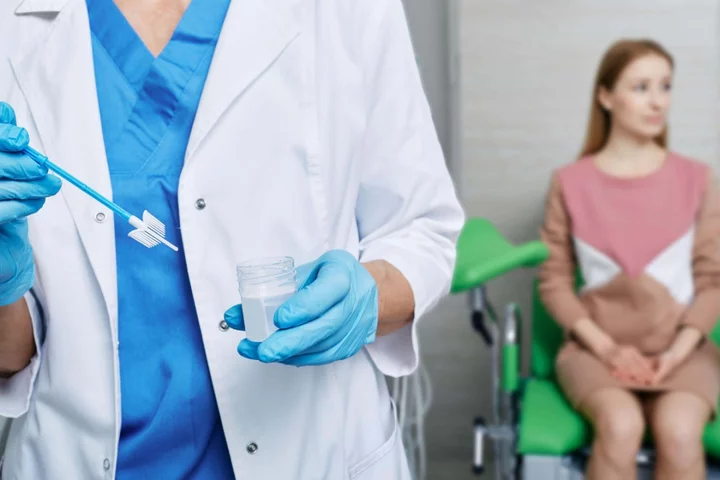
What you need to know about new research into treating cervical cancer
Using existing drugs to treat cervical cancer before standard treatment could lead to a 35% reduction in the risk of relapse or death, a new study suggests. Researchers from the UCL Cancer Institute and UCLH looked into whether a short course of induction chemotherapy (IC), where a drug is used to destroy as many cancer cells as possible, before chemoradiation (CRT), could help with this. Here’s everything you need to know about the findings… What is cervical cancer? According to the NHS website, cervical cancer is a type of cancer found anywhere near the cervix – the opening between the vagina and the womb (uterus), which is also known as the neck of the womb. Most cervical cancers grow very slowly and are caused by an infection from specific types of human papillomavirus (HPV) and mostly affect women under the age of 45. According to Jo’s Cervical Cancer Trust, symptoms include vaginal bleeding that is unusual to you, changes to vaginal discharge, discomfort during sex and pain in your lower back or pelvis. Changes to cells can be spotted by a cervical screening, and then treated before they turn into cancer. There are around 3,200 new cases every year in the UK, with the five-year survival rate being around 70%, according to Cancer Research UK. CRT has been the standard treatment for cervical cancer patients since 1999, but even though there have been overall significant developments in radiation therapy techniques, up to 30% of people experience their cancer coming back. What did the research involve? Over a 10-year period, 500 patients who had been diagnosed with cervical cancer – that was large enough to see without a microscope but hadn’t spread to other parts of the body – took part in the Interlace trial at hospitals in the UK, Mexico, India, Italy and Brazil. Researchers looked into whether a short course of IC before CRT could reduce rates of relapse and death. What results were found? After five years, researchers discovered that 80% of the people who received a combination of chemotherapy and radiotherapy were alive, whilst 73% had not seen their cancer return or spread. A major benefit, according to researchers, is that it can be incorporated into standard of care treatment relatively quickly, because cheap, accessible and already-approved ingredients such as carboplatin and paclitaxel are needed for IC. “Our trial shows that this short course of additional chemotherapy delivered immediately before the standard CRT can reduce the risk of the cancer returning or death by 35%,” said Dr Mary McCormack, lead investigator of the trial from UCL Cancer Institute and UCLH. “This is the biggest improvement in outcome in this disease in over 20 years. “I’m incredibly proud of all the patients who participated in the trial; their contribution has allowed us to gather the evidence needed to improve treatment of cervical cancer patients everywhere. “We couldn’t have done this without the generous support of Cancer Research UK.” Why is the research important? Dr Iain Foulkes, executive director of research and innovation at Cancer Research UK, said: “Timing is everything when you’re treating cancer. The simple act of adding induction chemotherapy to the start of chemoradiation treatment for cervical cancer has delivered remarkable results in this trial. “A growing body of evidence is showing the value of additional rounds of chemotherapy before other treatments like surgery and radiotherapy in several other cancers. “Not only can it reduce the chances of cancer coming back, it can be delivered quickly using drugs already available worldwide. “We’re excited for the improvements this trial could bring to cervical cancer treatment and hope short courses of induction chemotherapy will be rapidly adopted in the clinic.”
2023-10-23 20:22
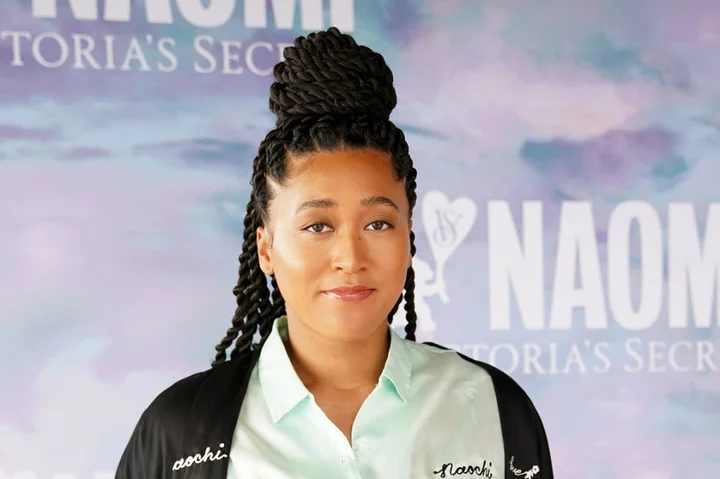
Naomi Osaka opens up about fighting thoughts that she ‘won’t be a good mom’
Naomi Osaka has reflected on battling self-doubt and difficult thoughts as a new mother. The four-time Grand Slam tennis champion gave birth to her first child, a daughter named Shai, in July 2023. She shares Shai with her partner, rapper Cordae. On Sunday (22 October), Osaka shared some insights into her personal life with her fans to mark turning 26 earlier in the week. In an extended post on X, formerly Twitter, the Japanese athlete wrote about taking stock of her life so far, and wondering whether or not she’s taken the “correct path”. “I often try to retrace my steps to figure out how did I end up here,” she explained. “I know I say this often but I truly still feel like that kid playing on public courts in Queens, NY. “Randomly I wonder if I’m doing OK, is there a correct path to take in life or have I veered off onto the scenic route for a little bit? However, I’ve now come into the mindset that I can only keep moving forward and everything that will be, will be.” Osaka then shared her specific feelings of worry about her capabilities as a parent. “Something I had to conquer recently is fighting the thought that I won’t be a good mom,” she wrote. “So many doubts raced through my head I had to swat them away like mosquitoes. “Looking into Shai’s eyes and holding her I always think, ‘Wow this little person depends on me so much, I have to do better.’ It’s such a strange feeling watching your kid grow, you blink and they’re double the size in a few months. “Gratefulness reminds me to breathe and take in the little things (and the big ones).” Osaka ended her post by expressing her gratitude for having “another year” and for the people who support her. Osaka’s last competitive match was at the Toray Pan Pacific Open in September 2022, before she withdrew from the tournament due to abdominal pain. She announced her pregnancy in January 2023 shortly after stating that she wouldn’t be competing in the Australian Open later that month. Last month, Osaka spoke about her year away from playing tennis and mentioned how other female tennis stars’ longevity has influenced her desire to keep competing. “The whole process, it felt long and short at the same time,” she told the American sports news channel ESPN. “When I stepped away, it was Tokyo, that was the last tournament I played. I just remember watching the Australian Open and being very devastated, because I’ve never missed an Australian Open. “When I was watching Serena and Venus [Williams], I was thinking, ‘Ah, I probably no way will ever play at their age’, but sitting here, I’m like, ‘You know what? I might do that actually.’” Read More ‘Truly heartbroken’ Rebecca Adlington reveals late miscarriage Should we stop putting the clocks back? What the experts think ‘I lost over a stone on Ozempic, but now it’s run out what am I to do?’ ‘Truly heartbroken’ Rebecca Adlington reveals late miscarriage Should we stop putting the clocks back? What the experts think ‘I lost over a stone on Ozempic, but now it’s run out what am I to do?’
2023-10-23 17:21
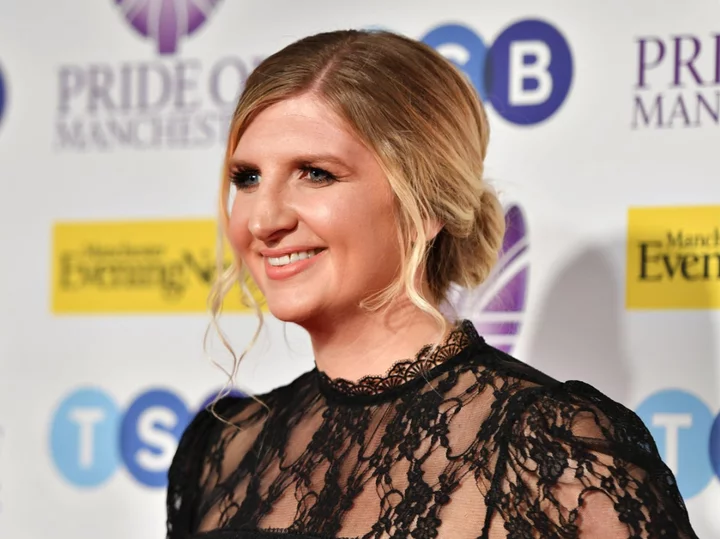
Rebecca Adlington says she’s ‘truly heartbroken’ after late miscarriage
Rebecca Adlington has said she’s “truly heartbroken” as the British swimmer announced she had a miscarriage at 20 weeks pregnant. Adlington, 34, said she went for her 20-week scan earlier this week and was informed her baby had no heartbeat, adding she and husband Andy Parsons, 31, “will forever love and remember” their daughter. She wrote on Instagram: “I don’t really have the words right now but unfortunately we went for our 20-week scan this week and they discovered no heart beat [sic].” Adlington added that she gave birth to the baby – who the couple named Harper – on Friday (20 October) and “we held her, and had time with her”. The two-time Olympic gold medallist thanked the staff at the Wythenshaw hospital in Manchester for their “incredible” kindness and care, and Parsons for his “selfless support, love, and help”. “I don’t have the strength or words right now and don’t feel ready to share this news,” Adlington continued. “However, I can’t pretend to be okay or fake a smile. I can’t have people ask me how pregnancy is or when I am due as I still look pregnant. I don’t have the strength to tell this news individually.” The former I’m a Celebrity contestant announced she was pregnant on 1 October, sharing a photograph of her family taken at Disneyland Paris. Former track athletes Dame Jessica Ennis-Hill and Greg Rutherford, ex-hockey player Sam Quek, former swim champion Adam Peaty, and presenters Angellica Bell and Helen Skelton shared messages of support in the comments section of Adlington’s Instagram post. Ennis-Hill wrote: “Oh Becky I’m sending you and your family so much love. I’m so sorry xxxx.” Rutherford said: “Sending love to you. So sorry to read this Becky xx.” Quek also wrote: “Becky, I know no words will ease the pain… my entire heart is with you all.” Peaty’s message read: “I’m so sorry to hear this, my prayers are with you all” alongside a heart and praying hand emoji. Adlington previously revealed she had a miscarriage 12 weeks into her pregnancy last August, sharing the news on Instagram at the time. The mother-of-two wrote: “It’s such a devastating time but important in times like these we remember we aren’t alone and have so much support. “Long way to go but I’m in the right place,” she added. “Once I’m able to leave hospital I’m extremely grateful I get to go home and give my 2 little ones the best hugs!” Adlington, who has also appeared on Celebrity MasterChef, shares one son, Albie, two, with Parsons. She also has an eight-year-old daughter, Summer, from her first marriage to swimmer and personal trainer Harry Needs. You can contact the Miscarriage Association helpline on 01924 200799 or email the charity at info@miscarriageassociation.org.uk. The helpline is open from 9am to 4pm Monday to Friday. For more information, help and support regarding pregnancy loss, you can contact Tommy’s on 0800 0147 800. To contact Petals to enquire about the charity’s counselling services, you can call 0300 688 0068 or email counselling@petalscharity.org. Read More Should we stop putting the clocks back? What the experts think ‘I lost over a stone on Ozempic, but now it’s run out what am I to do?’ Consistent lack of sleep may increase risk of future depressive symptoms – study Should we stop putting the clocks back? What the experts think ‘I lost over a stone on Ozempic, but now it’s run out what am I to do?’ Consistent lack of sleep may increase risk of future depressive symptoms – study
2023-10-23 15:17
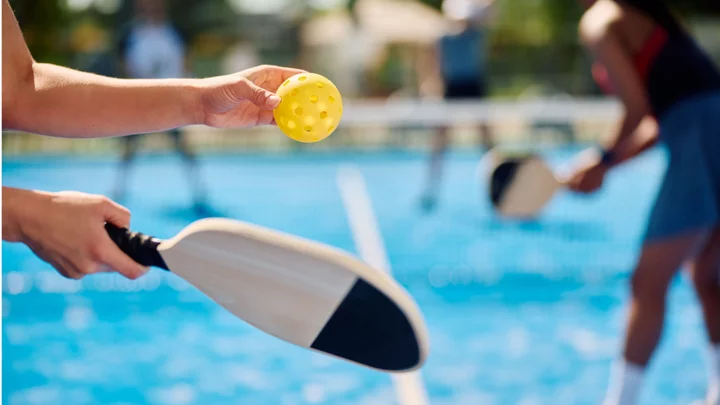
Apple Watch Users Are Swapping Tennis For Pickleball
Pickleball is quickly gaining in popularity across the United States. There’s no denying that playing
2023-10-22 22:54
You Might Like...
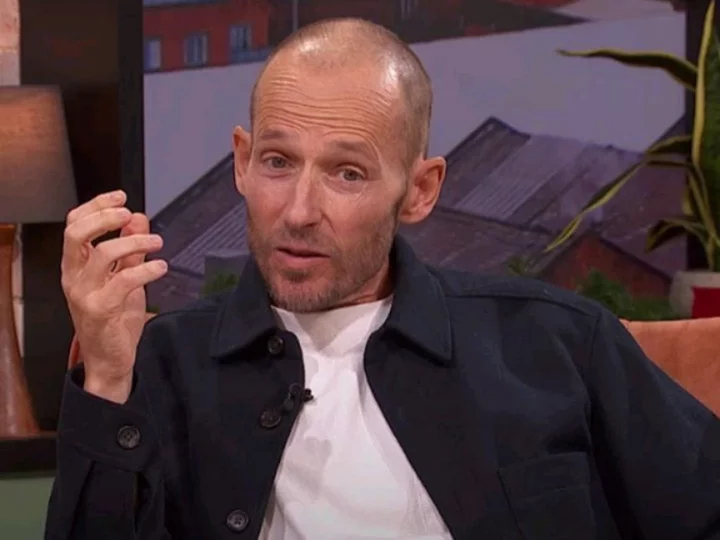
Jonnie Irwin ‘removes himself’ from family home amid terminal cancer battle

Sam Neill shares blood cancer update as he reveals he’s ‘not remotely afraid’ of death
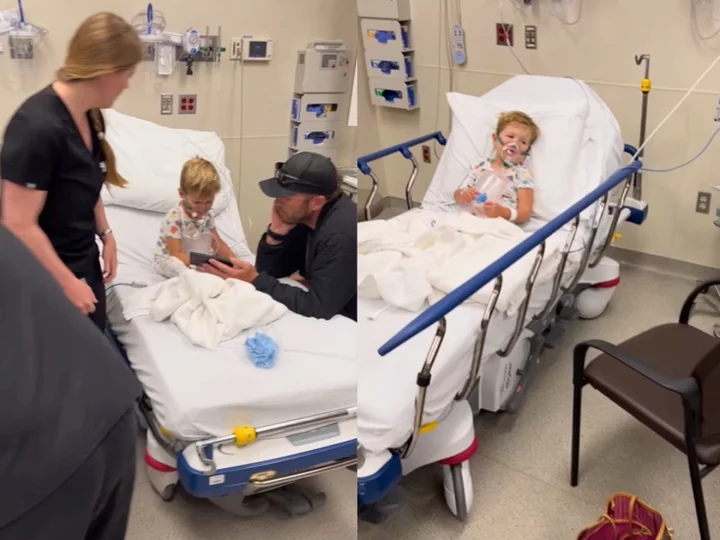
Bode Miller says his toddler son Asher was hospitalised for carbon monoxide poisoning

Ricky Gervais says he’s ‘lived through the worst eight hours of illness’
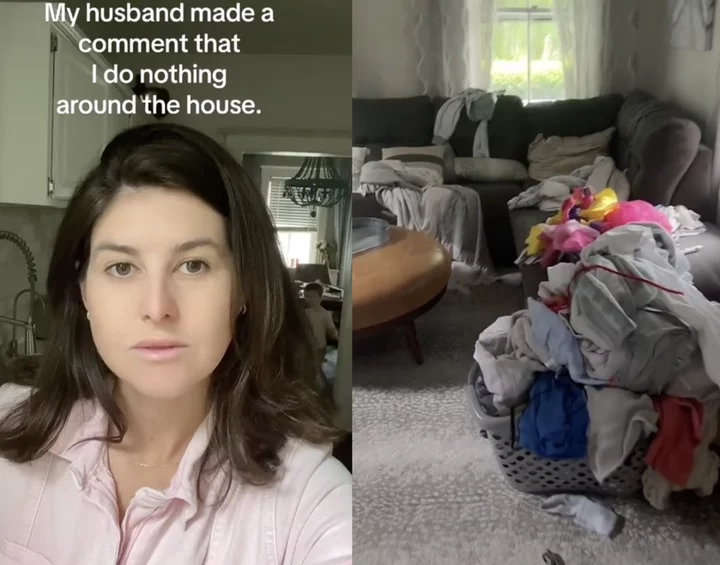
Woman stops tidying up after her husband accused her of doing ‘nothing’, then filmed the results
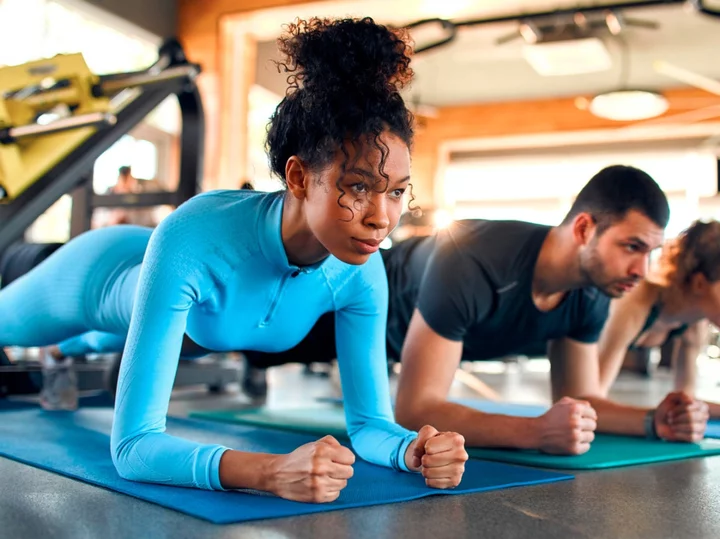
The two best exercises for lowering blood pressure, according to study
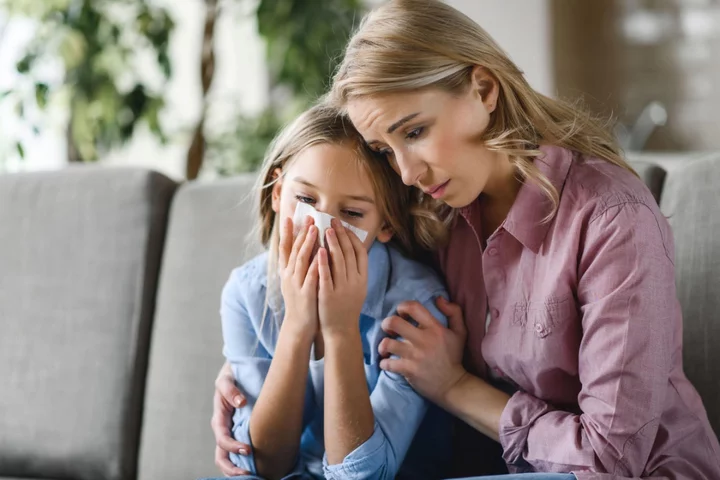
How to protect your kids and yourself from back-to-school colds
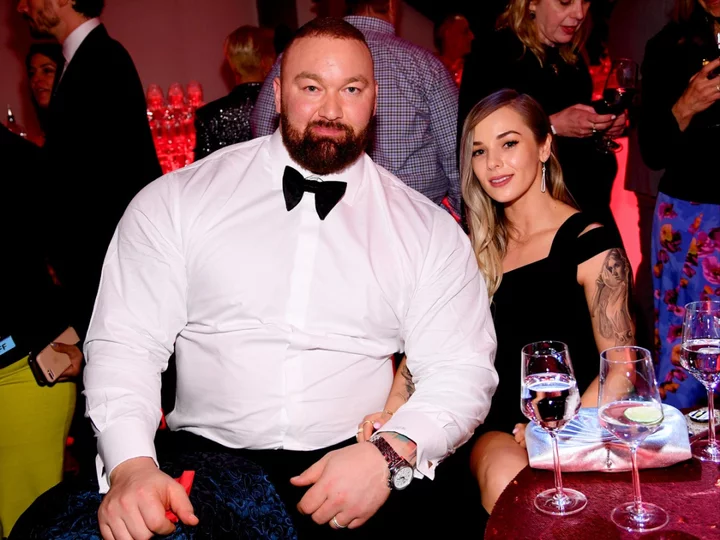
Game of Thrones star Thor Bjornsson announces ‘unbearable loss’ of baby after stillbirth
